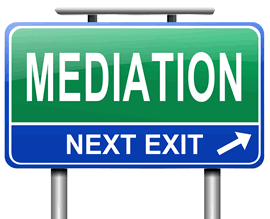Here you can find answers to your frequently asked questions. Check back often as we will continue to add to this section. If you have any questions, please call us at 727-742-1191
What is an Attorney?
An attorney (also called lawyer, counsel, counselor, solicitor, or barrister) is a professionally trained and licensed individual who assists people with legal problems, often times preparing legal documents or representing people before courts and government agencies.
What you need to know about choosing a lawyer?
The law is something that affects each of us every day at some time or another – either in our family or business lives. When do you need an attorney? When can you handle a matter on your own or should you? When circumstances and laws are unique, complicated, or confusing, you may need the assistance of an attorney. The following information is provided in an effort to help determine your best course of action.
Once I Have Hired A Lawyer, How Can I Make Sure That We Will Work Well Together And Minimize The Expense?
Be prepared when you meet with the lawyer. Bring all necessary documents when requested by the attorney and make sure you understand what the next step will be in your case. Write down your thoughts, concerns and issues beforehand.
Be honest. Make sure your attorney knows everything. Make sure that you are in agreement with the legal strategy before it is executed. Communicate your concerns and questions up front and then let your lawyer do their job.
Be efficient. Don’t make unnecessary phone calls to the attorney. Most lawyers charge for time spent on the phone with a client. Keep a list of all items you want to check with your lawyer and cover them in one phone call or ask them at your next scheduled appointment.
Be realistic. Understand that there are sometimes limitations on what an attorney can accomplish in a given situation within the law. Legal proceedings can be difficult, demanding and take a long time to resolve.
Keep records. File any material you receive from your lawyer in one place. Your file is often the best way to answer questions about your case.
What If I Cannot Afford An Attorney?
Generally, you will not know whether or not you can afford a lawyer until you have called a lawyer’s office or had an initial consultation with a lawyer. Don’t immediately assume that it will be too expensive until you have explored the options before you.
Can I Use Online Forms To Represent Myself?
Beware that trying to handle legal problems if you are not an attorney can be risky. Everyone’s legal issue is unique and forms may not always take that into consideration. While there are many resources available to individuals like mediation or small claims court, consulting with an attorney BEFORE trying to represent yourself is the best course of action. In Florida, the only individuals who can draft legal documents for other people or give legal advice are lawyers licensed to practice law in Florida. Any non-lawyer who drafts legal documents, gives legal advice, or gives the impression that they are an attorney when they are not may be guilty of the unauthorized practice of law.
What Should I Consider When Hiring An Attorney?
The attorney’s areas of practice and prior experience are important. You will want to discuss fees the attorneys will charge. How will fees be generated – on a flat fee, contingent fee, or hourly fee basis? If the fees are billed, what is that process? How much time does the attorney estimate it will take to resolve your matter? Remember, you should be comfortable with the attorney. Can you share the personal aspects of your case with this person?
What Is My Attorney's Duty To Me?
Your attorney’s principal duty is to see that you are given the benefit of all your legal rights. An attorney is sworn to conduct cases in an orderly way that will assure that they may be decided upon their merits. Your attorney may not make an agreement or incur any obligations that might substantially prejudice your interest, without our prior approval.
What Is My Duty To My Attorney?
You should give your attorney all the facts concerning your case and make a full and fair disclosure of the entire situation. In order to serve you well, your attorney must know not only the favorable facts but also those that may be unfavorable.
How Are Fees Charged By The Attorney?
Cost is an important factor to many individuals who are looking to hire an attorney. The fees which are charged by the attorney can depend upon many things. You should sign a contract agreement when authorizing an attorney to work for you. It should specify how you will pay (hourly rates, contingency fees, flat fees, or retainers) and the cost will vary based upon the specific legal service (research, drafting of documents, filing fees, court hearings, traveling).
Flat Fees: The attorney provides a specific service for a specified set fee.
Contingency Fees: The attorney is paid only when money is collected for you, usually a percentage of the amount recovered. However, you will be expected to pay some cost “up front” such as filing fees, court cost and cost of discovery.
Retainers and Hourly Fees: The attorney often will ask for a retainer, or advance payment, before working for you. Some retainers will be “non-refundable” should you change your mind about proceeding with legal action. You should be aware of that and also understand if the hours billed will be billed from the retainer or in addition to the retainer. You should receive an itemized statement listing services provided and fees charges.
What Documents Should I Take With Me To The First Meeting?
Be as organized as possible. If you have a complicated problem you may want to place different papers in different labeled folders to make documents easy to find. Make copies of papers that are important to your case. In most cases, you will not be leaving your original documents with the attorney. Write down your questions before your visit. Here is a handy checklist of basic questions:
- Have you handled matters like mine before?
- What are the possible outcomes of my case?
- What are my alternatives in resolving the matter?
- Approximately how long will it take to resolve?
- What are your rates and how often will you bill me?
- What kind of approach will you take to resolve the matter?
Start the visit by briefly outlining your problems for the attorney and then ask the attorney for his/her advice. At this point the attorney may ask questions and/or wish to review your documents. Remember you and the attorney are on the same team. Be as truthful as possible. The conversation with the attorney is confidential.
What Can I Expect After I Hire The Attorney?
Once you have hired an attorney, substantial and frequent contact with you is generally not needed. The fee that the attorney quotes usually assumes nominal contact. However, if you decide you would like to meet with your attorney to discuss the status of your case or new developments, call and make an appointment. Be sure to ask if there are any additional charges for the office visit. In some cases, letters and emails are the most economic and efficient method of handling questions.

